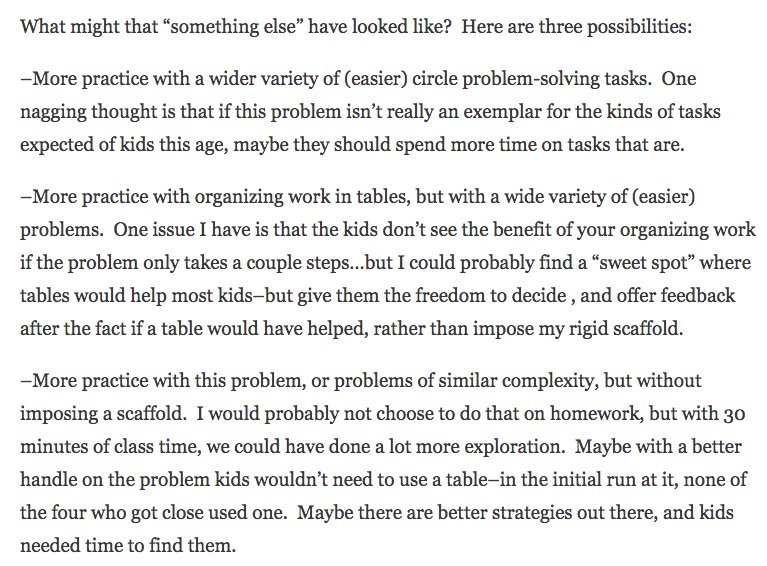Teacher Ollie's Takeaways is a weekly summary of many of the fascinating and inspiring things that Ollie's discovered in the world of education. Often in the form of a twitter digest, it can also sometimes include book or conference notes. Find all past Teacher Ollie's Takeaways here,
The long term effects of school shootings on student performance, via @DTwillingham
What happens to the achievement of the remaining students in the years after a school shooting? .- Daniel Willingham https://t.co/uIKW4oxHdH
— Oliver Lovell (@ollie_lovell) February 21, 2018
Dynamic activity to introduce students to the coordinate plane, via @Desmos
A couple of years ago I did a blog post comparing and contrasting how I used a similar approach with tech in Aus, vs. without tech in Myanmar (to English language learners). Check it out here.
Activity to introduce students to the coordinate plane. Students create their own @desmos https://t.co/oSC9TZc72g pic.twitter.com/DfbWInIe4Y
— Oliver Lovell (@ollie_lovell) February 21, 2018
Maybe personalised learning isn't all it's cracked up to be, via @rickhess99
The map doesn't exist! A confession and a question on personalized learning https://t.co/1ngGJrxy36 pic.twitter.com/GZt5O1UTJ6
— Oliver Lovell (@ollie_lovell) February 16, 2018
Maths bot to support students' mental calculations, via @StudyMaths
Pretty cool little maths bot to help students improve mental calculations. Have a play, it's very dynamic. https://t.co/hWz0D9NWDx
— Oliver Lovell (@ollie_lovell) February 17, 2018
Scaffolding multi-step maths problems, via @rhwave2004
This is an excellent post by @rhwave2004 that presents a really clever scaffolding approach for multi step maths problems. Here's the crux of the idea. (arithmeticplus.wordpress.com/2018/01/27/sta…)

. @rhwave2004 also writes about the challenge of supporting students to answer tricky problems like this one:

She then introduces us to the basis of her scaffold.

And talks about how she reverse faded the scaffold over time.

And shares the success of the approach.

The opportunity cost of the teaching time is then rightly considered.

And @rhwave2004 considers how it could have possibly been better spent. In my opinion, this time was incredibly well spent @rhwave2004. I reckon from here if you use a similar approach with other strategies, whilst re-visiting problems that can be used by this strategy, and

Increasingly interleave the strategies that you teach students over time, then you'll have created yourself some really dynamic mathematical problem solvers.
The acquisition/retention paradox, balancing learning and performance
The acquisition/retention paradox, in sport! The following comes from Guadagnoli, M. A., Dornier, L. A., & Tandy, R. D. (1996). Optimal length for summary knowledge of results: the influence of task-related experience and complexity. (sci-hub.tw/10.1080/027013…) First off, we need to get past the language. When they refer to KR, they mean ‘knowledge of results', which means ‘written feedback', in this case on a simple motor skills task. Then we need to understand the ‘summary KR' procedure:

The sooner we give feedback, the better learners are able to integrate it into their performance during acquisition.

But, incredibly, when it comes to testing, we see the reverse effect.

Why does this happen? Here's one suggestion.

Here's Lavery's paper: (sci-hub.tw/10.1037/h00832…)